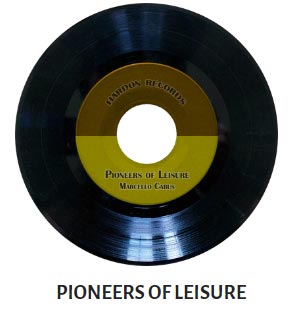Originally published in the New York Times, November 14, 1979
https://www.nytimes.com/1979/11/14/archives/trial-is-on-in-drug-case-linked-to-denver-volleyball-team-wiretap.html
GOLDEN, Colo., Nov. 13 — In the closing minutes of a professional volleyball game between the Denver Comets and the Albuquerque Lasers last July 14, the top management of the Denver club was rounded up in a drug raid by the Colorado Organized Crime Strike Force and led from a Denver auditorium in handcuffs. The Comets won the game anyway.
Prosecutors contend that the flamboyant sweep has “severely interrupted,” if not stopped, marijuana traffic in Denver, which state law enforcement officials call the distribution point for marijuana from California to the Mexican border, and from the Middle West to California. ,
By the time the trial started here today, 13 of the 17 defendants arrested in that sweep had pleaded guilty to felony conspiracy counts. Among those pleading guilty were David Casey, the Comets’ board chairman and general manager; his brother, Robert, the team’s president, and Douglas Killingsworth, vice president of the team. According to evidence gathered through wiretaps and from informers in the strike force’s 18‐month investigation, the Caseys were dealing in thousands of pounds of marijuana and sometimes in kilograms of cocaine.
Among those pleading not guilty was Marcello Cabus Jr., 32 years old, of Boulder, Colo. The drug enforcement authorities believe that Mr. Cabus is one of the state’s major marijuana “brokers.”
A crucial factor in the case was the ruling two weeks ago by District Judge Anthony Vollack that wiretap evidence central to the prosecution’s case was admissible evidence.Continue reading
“Of course you never know until the judge rules,” said Alan R. Beckman, an Assistant Attorney General who is trying the case with Robert Nathan, director of the Colorado Strike Force, “but I have been prosecuting for five years now here and in Miami and this is the cleanest wiretap I’ve ever seen. We opened all our files to the defense. There was nothing to hide.”
More than 780 telephone conversations between mid‐March and mid‐May this year were taped at the Comets’ office in Denver and at the homes of Robert Casey and Mr. Killingworth. Lawyers on both sides say the tapes are extremely damaging.
Inquiry Called ‘Operation Spike’
The prosecutors allege that the Caseys supplied dealers who distributed marijuana throughout Colorado, New Mexico, Arizona, Utah, South Dakota, Wisconsin and Montana. They also allegedly supplied major dealers in British Columbia.
Members of the strike force called their investigation “Operation Spike,” after the move in volleyball in which a player smashes the ball straight down into his opponent’s court. The strike force had Comets T‐shirts made with “Operation Spike” on the back.
David Casey is said to have been regarded as a dynamic and serious young businessman with a good reputation in the International Volleyball Association. Last spring he sponsored a Comets exhibition game in Central City to raise money for a new school there.
But one player in the association said he had heard rumors about drugs and the Caseys. “I think it was fairly common knowledge around the league,” he said.
Most of those who pleaded guilty have pleaded to felonies. Sentencing is scheduled for January, but Mr. Beckman said the state reserved the right to claim “aggravating circumstances” in five of those cases, including those of Robert and David Casey and Mr. Killingsworth. The defendants could serve between four and eight years.
